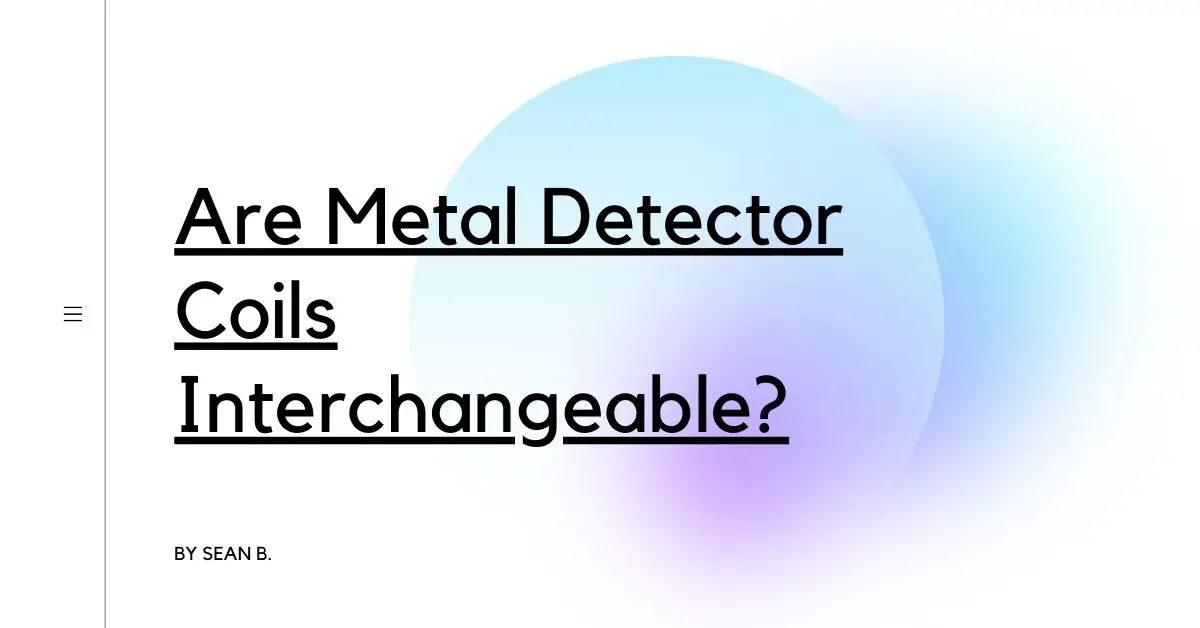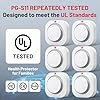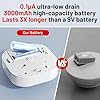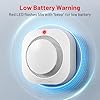Metal detectors use coils to search for buried metals. These coils can be interchangeable, depending on the model of metal detector. Some metal detectors have a single coil that can be removed and replaced, while others have multiple coils that work together. The coils on a metal detector can be of different sizes and shapes, depending on the manufacturer.
Contents
Different types of metal detector coils and their benefits
Metal detectors come with a range of different coils, each with their own benefits. The most common coils are the concentric coil, the double-D coil, and the monoloop coil.
The concentric coil is the most popular type of coil, as it offers a good balance of depth and coverage. The double-D coil is best for finding larger objects, as it has a wider scanning area. The monoloop coil is the most sensitive type of coil, making it ideal for finding small objects.
each type of coil has its own benefits, so it is important to choose the right coil for your needs.
Why you should or shouldn’t interchange your metal detector coils?
There are a few reasons why you might want to interchange the coils on your metal detector. Maybe you’re trying to cover more ground, or you’re looking for a particular type of metal. Or, you might not be happy with the performance of the coil that came with your metal detector.
If you’re trying to cover more ground, you might want to consider a larger coil. Larger coils will give you better coverage, but they’re also more likely to miss smaller objects. If you’re looking for a particular type of metal, you might want to try a different coil that’s designed for that type of metal. For example, if you’re looking for gold, you might want to try a gold prospecting coil. Or, if you’re looking for coins, you might want to try a coin-shooting coil.
If you’re not happy with the performance of the coil that came with your metal detector, you might want to try a different coil. There are a lot of different coils on the market, and each one has its own strengths and weaknesses. You might want to try a different coil if you’re not happy with the depth, sensitivity, or discrimination of the coil that came with your metal detector.
In general, you should only interchange your metal detector coils if you have a good reason to do so. Otherwise, you might miss out on important finds, or you might end up with a coil that doesn’t work well with your metal detector.
How to interchange your metal detector coils?
If you’re like most people, you probably don’t think much about the different coils on your metal detector. However, if you’re serious about metal detecting, then you know that each coil has its own unique capabilities. In this article, we’ll show you how to interchange your metal detector coils so you can get the most out of your machine.
The first thing you need to do is identify the different coils on your metal detector. Most metal detectors will have at least two coils: a search coil and a discrimination coil. The search coil is the larger of the two coils and is used to scan the ground for metal objects. The discrimination coil is smaller and is used to help identify what type of metal an object is made of.
Once you know which coils are which, you can start interchange them. To do this, simply turn off your metal detector and unscrew the coil covers. Then, take the search coil off of the metal detector and screw on the discrimination coil. Be sure to screw the coil covers back on tightly so they don’t come off while you’re metal detecting.
Now that you know how to interchange your metal detector coils, you can start experimenting with different combinations to see what works best for you. Remember, each coil has its own unique capabilities, so it’s important to experiment to find the right combination for your needs.
The pros and cons of using different metal detector coils
There are many different types of metal detector coils available on the market, each with its own advantages and disadvantages. The most common types of coils are concentric, double-D, and monoloop coils.
Concentric coils are the most popular type of coil and are used on most entry-level metal detectors. They are easy to use and offer good performance in a variety of conditions. However, they are not as sensitive as other types of coils and can miss smaller targets.
Double-D coils are more sensitive than concentric coils and are better at detecting smaller targets. However, they can be more difficult to use and are not as good in heavily mineralized soils.
Monoloop coils are the most sensitive type of coil and are excellent at detecting small targets. However, they can be difficult to use and are not as good in heavily mineralized soils.
When choosing a metal detector coil, it is important to consider the type of detecting you will be doing and the conditions you will be using it in.
What to consider when choosing a metal detector coil?
size
When it comes to coils, size definitely matters. The size of the coil will determine how deep it can penetrate the ground and how much area it can cover. In general, a larger coil will be able to penetrate deeper and cover more ground than a smaller coil. However, a larger coil may also be more difficult to maneuver and may miss smaller targets.
There are a few things you should consider when choosing a coil size:
-The type of terrain you’ll be hunting in. If you’ll be hunting in rocky, hilly terrain, a smaller coil may be a better option as it will be less likely to get stuck on rocks and roots.
-The type of targets you’re looking for. If you’re hoping to find large objects, such as coins or jewelry, a larger coil may be a better option. However, if you’re mostly interested in small objects, such as nails or buttons, a smaller coil may be better so you don’t have to sift through a lot of dirt and debris.
-Your own physical strength and stamina. A larger coil may be more difficult to carry around and may cause fatigue more quickly. If you don’t have a lot of upper body strength or you get tired easily, a smaller coil may be a better option.
Ultimately, the best coil size for you is the one that you’re most comfortable using and that suits your individual hunting needs.
How to get the most out of your metal detector by using the right coil?
When it comes to metal detecting, one of the most important pieces of equipment is the coil. The coil is what helps the metal detector to locate metal objects buried underground. There are different types of coils available on the market, each designed for a specific purpose. In order to get the most out of your metal detector, it is important to choose the right coil for the job.
The first thing to consider when choosing a coil is the size. The size of the coil will determine how deep the metal detector can scan. If you are looking for large objects, then a larger coil is necessary. Smaller coils are better for smaller objects and are also more maneuverable.
The next thing to consider is the type of terrain you will be using the metal detector in. If you are using it in an area with a lot of rocks and debris, then a coil with a lot of sensitivity is necessary. This will help to prevent false positives. If you are using the metal detector in an area with very little debris, then a coil with less sensitivity can be used.
The final thing to consider is the price. Coils range in price from a few hundred dollars to over a thousand dollars. It is important to find a coil that fits your budget. There are many different brands and models of coils available. It is important to do your research in order to find the best coil for your needs.
Tips and tricks for using different metal detector coils
If you are using a metal detector for the first time, or are simply looking for ways to improve your performance with different coils, here are some tips and tricks to help you get the most out of your machine.
1. Use the correct coil size for the task at hand:
- For general purpose detecting, use a coil that is 8 inches in diameter or smaller.
- For detecting in heavily mineralized soils, use a coil that is at least 10 inches in diameter.
- For detecting in very shallow water, use a coil that is 12 inches in diameter or smaller.
2. Use a coil that has a good ground balance:
- For general purpose detecting, use a coil that has a good all-around ground balance.
- For detecting in heavily mineralized soils, use a coil that has a good all-around ground balance and also offers a manual ground balance adjustment.
- -For detecting in very shallow water, use a coil that has a good all-around ground balance and also offers a waterproof feature.
3. Use a coil that is comfortable for you:
- For general purpose detecting, use a coil that is comfortable for you to hold and swing.
- For detecting in heavily mineralized soils, use a coil that is comfortable for you to hold and swing and also offers a good weight distribution.
- For detecting in very shallow water, use a coil that is comfortable for you to hold and swing and also offers a good weight distribution and a waterproof feature.
4. Use a coil that offers the features you need:
- For general purpose detecting, use a coil that offers the features you need and is also affordable.
- For detecting in heavily mineralized soils, use a coil that offers the features you need, is affordable, and also offers a good all-around ground balance.
- For detecting in very shallow water, use a coil that offers the features you need, is affordable, and also offers a good all-around ground balance and a waterproof feature.
Summary
Are Metal Detector Coils Interchangeable?
If you’re like most people, you probably think that all metal detector coils are interchangeable. After all, they all look pretty similar, right? Wrong! Metal detector coils are not all interchangeable, and in fact, using the wrong coil for your metal detector can actually damage your machine. So what’s the difference between all those coils, and how do you know which one to use?
First, let’s start with the basics. Metal detector coils come in two basic types: concentric and double-D. Concentric coils have a cone-shaped search field, while double-D coils have two flat plates that create a more rectangular search field. So, which one should you use?
It depends on what you’re looking for. If you’re trying to find small, deeply buried objects, a concentric coil will give you a narrower, more focused search field that can penetrate deeper into the ground. On the other hand, if you’re looking for larger objects that are closer to the surface, a double-D coil will give you a wider search field that can cover more ground more quickly.
In general, concentric coils are better for detecting smaller objects at greater depths, while double-D coils are better for detecting larger objects at shallower depths. However, there are a few exceptions to this rule. For example, some metal detectors have specialized coils that are designed for use in water, while others have coils that are better suited for use in heavily mineralized soils.
So, the next time you go to purchase a new coil for your metal detector, make sure you choose the right one for the job. Otherwise, you might just end up damaging your machine – and your finds!



















